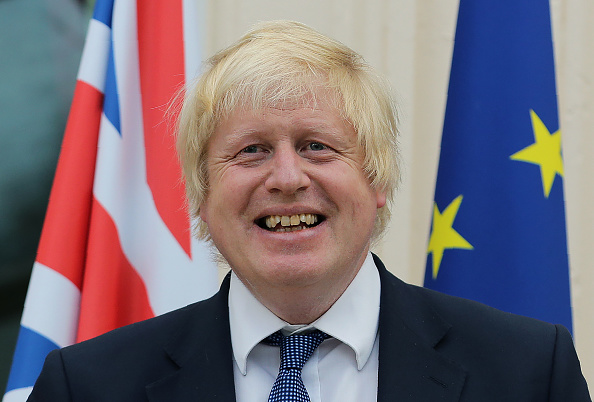We can avoid a no-deal Brexit, if both sides just keep calm

The Eurozone economy is not looking healthy.
The German engine is stalling, global trade tensions will not abate any time soon, and President Donald Trump may soon turn his fire on Europe.
China has allowed the renminbi to sink, thereby exporting deflationary pressures. Large economies like Italy, France and Spain are still in no condition to withstand a downturn. Few have space for significant fiscal stimulus while staying within “the rules” – such as they are.
The continued flawed and incomplete structure of the euro and the minimal ammunition left in the arsenal of the European Central Bank will make it difficult for it to ride effectively to the rescue, as it has done in the past.
The last thing anyone needs to add to this unpleasant cocktail is a no-deal Brexit. And yet, it can – possibly – be avoided.
The EU’s position is that it is not willing to reopen the withdrawal agreement negotiated with Theresa May. Fine. It should not be reopened. It should be shredded.
Let us remember why this complex document exists: because of May’s “red lines” recklessly delivered in her Lancaster House speech.
Boris Johnson has never once mentioned these red lines. He has only promised two things: leaving the EU on 31 October, and getting rid of the Irish backstop.
Imagine the following scenario.
The UK leaves the EU on 31 October with a standstill arrangement. Under these terms, the UK will no longer be part of the EU, but remains in the Single Market and customs union for a period of, say, two years, with no possibility for extension. The UK will retain all the obligations of membership, including budgetary contributions, while having no voting rights.
Those two years are then used to negotiate Britain’s future relationship with the EU – including arrangements for the Irish border.
Under this scenario, each side can claim victory. Boris will have delivered on his only two promises. The EU will not have reopened the withdrawal agreement.
The Irish border issue will have been kicked down the road – to be negotiated as part of the future relationship, which is where it always should have belonged.
There are, of course, political issues to be overcome with this arrangement.
First, would it get through the House of Commons? It is possible that the more hardcore Brexiteers, smelling the possibility of the no-deal Brexit they relish, would block it. There would be cries of “betrayal” and “Brexit in name only” from the Brexit Party.
But once the UK is out of the EU and in the process of negotiating a future relationship, it is debatable how relevant Nigel Farage’s party will remain.
Resistance may also come from Conservatives in the European Research Group. That will be a test of Boris’ leadership and the extent to which Brexiteers consider him one of their own and are willing to trust him.
The Labour party will not want to give Boris a Brexit victory and may vote against. Hard Remainers, like the Liberal Democrats, may well still cling to the belief that they can stop Brexit altogether.
Yet, the future electoral consequences of blocking a seemingly workable Brexit could be considerable. If such a solution is offered with an election looming in the short term and a no-deal exit being the only alternative, Remainers will be faced with a difficult electoral calculus. Their resistance will be painted as the ultimate driver of a no-deal Brexit, potentially giving Boris a significant boost.
For the Brexiteers in the Tory party, supporting the above arrangement could provide their best chance of an outright electoral victory in a post-Halloween election.
The spin will be that they have delivered on their promises by playing hardball and getting the EU to “bend” – a much better platform than having to cope with the fallout of a no-deal Brexit.
What of the EU?
Here we need to remember that “the EU” has no authority itself; authority is vested in its institutions by the member states. It matters not a damn what Michel Barnier thinks. What matters is what the individual governments think and what instructions they give the Commission.
Very few countries have any real appetite for a no-deal Brexit – except maybe one or two leaders who put ideological obsession over the wellbeing of their citizens.
For Ireland, the choice would be one of being able to claim that it has been successful in avoiding a hard border, or facing the imposition of such a border, as well as economic catastrophe, on 1 November.
For all other member states, the choice will be between a smooth transition with difficult discussions postponed for a couple of years (when tempers may have settled somewhat), or another unnecessary economic blow at a vulnerable time.
Is the only choice really between a no-deal Brexit and the current withdrawal agreement? Hardly. Both sides have a way out. Let’s see if they choose to take it.
Main image credit: Getty